Metal roofing myths, busted
August 11, 2025 at 12:00 p.m.By Trevor Underwood, DECRA Metal Roofing.
Do you think you know the whole truth about metal roofs? Some of these facts might surprise you!
Editor’s note: Share this information with customers who have questions about metal roofs.
Metal roofing often gets a bad rap: too loud, too hot, too risky, too expensive. But how much of that is actually true? For years, hearsay and half-truths have shaped public opinion about this durable roofing option. Now, with more homeowners looking for sustainable and long-lasting materials, companies like DECRA Metal Roofing are helping separate fact from fiction. From temperature control to cost, we’re cutting through the noise to reveal what metal roofing really offers and what it definitely doesn’t.
Myth 1: Metal roofs make houses hotter in the summer.
It's perfectly logical to think that a metal roof would make your house hotter in the summer, but this metal roofing myth couldn’t be further from the truth. Metal roofs are actually one of the most energy-efficient roofing materials on the market.
Metal roofs reflect energy from the sun up and away from the home, unlike asphalt shingle roofs which absorb heat like a sponge. During hot summer months, you may see warnings about how asphalt can heat up to 50 degrees hotter than the surrounding air temperatures.
This is because asphalt has poor solar reflectivity and low emissivity, making asphalt shingles one of the worst choices for energy-efficient roofing.
Metal roofs, on the other hand, are inherently reflective and can reflect as much as 70% of the sun's energy back into the air. Since metal reflects this energy up and away from the building, less heat is absorbed and the home stays cooler.
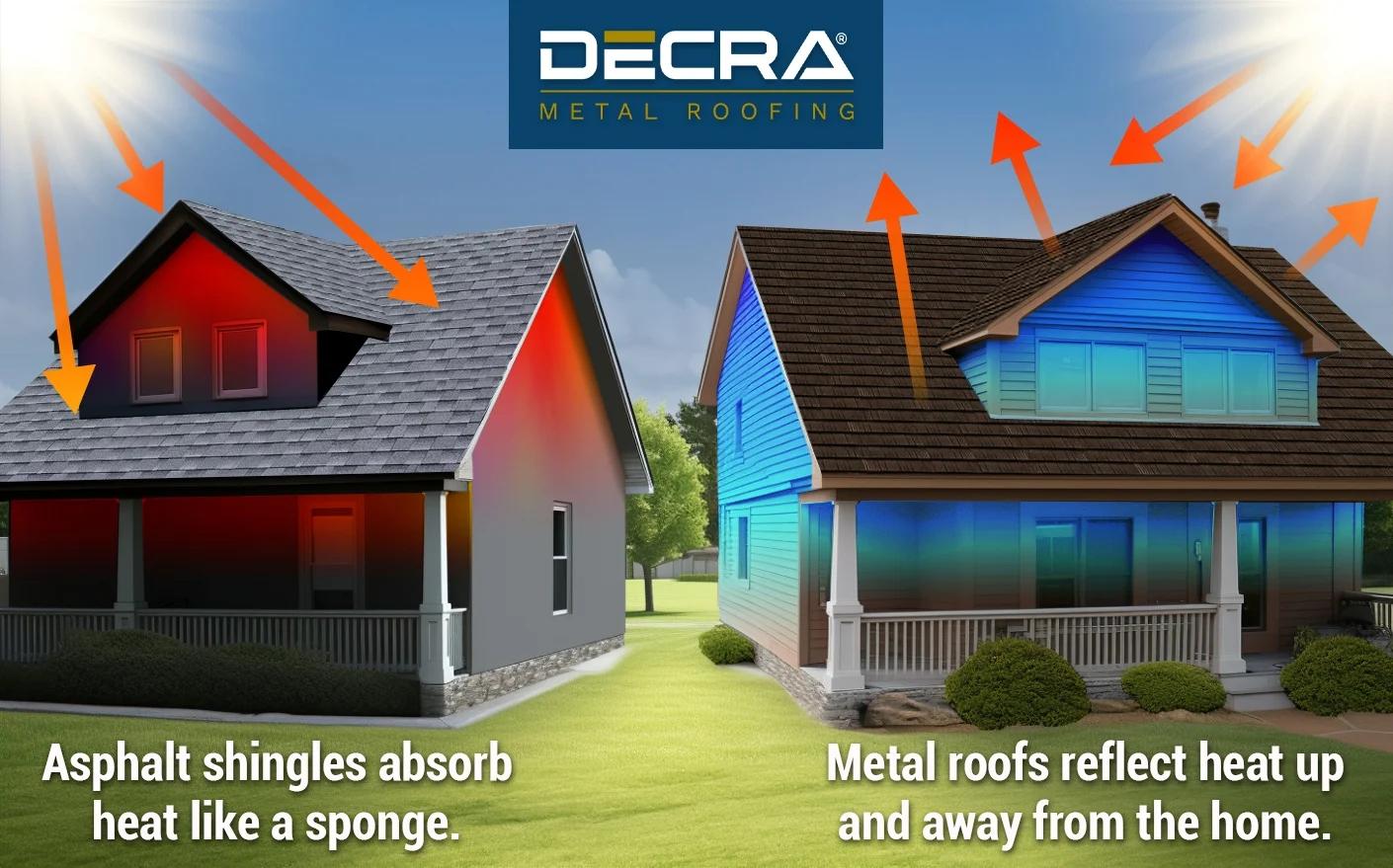
To illustrate this point, think of the metal hood of your car. Even on a hot day with heat from the sun above and heat from the engine below, the metal hood of your car cools quickly once parked. Within just a few minutes, the hood is cool to the touch.
Myth 2: Metal roofs are noisy in the rain.
Metal roofs are not inherently loud in the rain. The noise levels largely depend on the type of metal roofing and how it was installed. The thicker the coating and texture of a metal roofing panel, the more effective it is at disrupting the reverberation of sound waves. For example, uncoated sheets of aluminum or corrugated metal roofing, like those on barns or sheds, can be louder in the rain due to reverberation.
Additionally, residential and commercial properties typically have complete roof assemblies, including roof decks, insulation and underlayment, which dampen the sound of rain even further.
Stone-coated metal roofing products are especially quiet due to their texture and sound-absorbing stone granules.
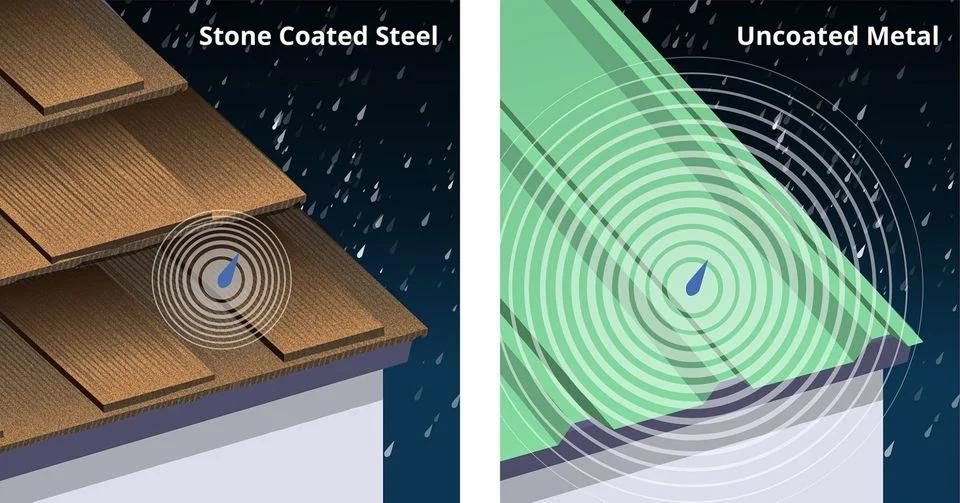
Myth 3: Metal roofs rust.
Not all metal roofs rust; their susceptibility to rusting depends on the type of metal and its treatment. Rust specifically affects iron and its alloys like steel. Steel roofs, which are alloys of iron, usually have coatings of zinc (galvanized) or a blend of zinc, aluminum and silicon to resist rust and corrosion.
DECRA Metal Roofing takes rust and corrosion resistance a step further by applying a metallic alloy coating, made up of 55% aluminum, 43.4% zinc and 1.6% silicon, ensuring long-term rust and corrosion resistance.
The aluminum ensures that a barrier against corrosion remains in effect once the zinc coating is sacrificed. Silicon provides superior alloy coating adhesion and helps the coating remain firmly in place while the high-grade carbon steel is rolled, stamped or bent during the manufacturing process.
This formula combines the strength of steel with the rust resistance of aluminum to ensure long-lasting endurance to the elements.
Myth 4: Metal roofs attract lightning.
It’s important to note that metal conducts electricity, but electricity is not drawn to it. Research on lightning protection reveals that metal roofing is no more likely to attract a lightning strike than any other type of traditional roofing material.
In fact, as a non-combustible material with the highest Class A fire resistance rating, metal roofs are one of the most desirable materials for homes and buildings in lightning-prone regions.
Why? Because when it comes to lightning, it’s all about fire prevention. Lightning produces intense heat and often this heat can cause fires on the roof or inside the house after "jumping" from the roof to the first available path to the ground. If the roof is covered with combustible materials like wood shakes or petroleum-based asphalt shingles, a lightning strike can easily start a fire.
When lightning strikes a metal roof, the voltage and risk of fire are quickly contained since metal is conductive and provides the lightning strike with a direct path to the ground outside of the home. This is essentially how a lightning rod works. Made from fire-resistant and highly conductive metal, lightning rods capture and safely channel the electrical energy from lightning strikes to the ground.
Myth 5: Metal roofs are more expensive.
There’s a grain of truth to this myth if you only factor in the cost of the initial installation. But when long-term value and ROI are considered, metal roofs are actually one of the smartest investments a homeowner can make.
Metal roofing is one of the most durable and longest-lasting roofing materials on the market–it also has an extremely high ROI. For instance, the strength and style of a new metal roof can increase home value by up to six percent. And while metal roofs cost slightly more to install than asphalt shingles, they will last two to three times longer.
- Asphalt: 12 - 20 years
- Clay or Concrete Tile: 50 years
- Metal: 70 years
- Wood: 15 - 20 years
Original article and photo source: DECRA Metal Roofing
Have a question? AskARoofer.
Find your local roofing contractor in the AskARoofer™ Contractor Directory.

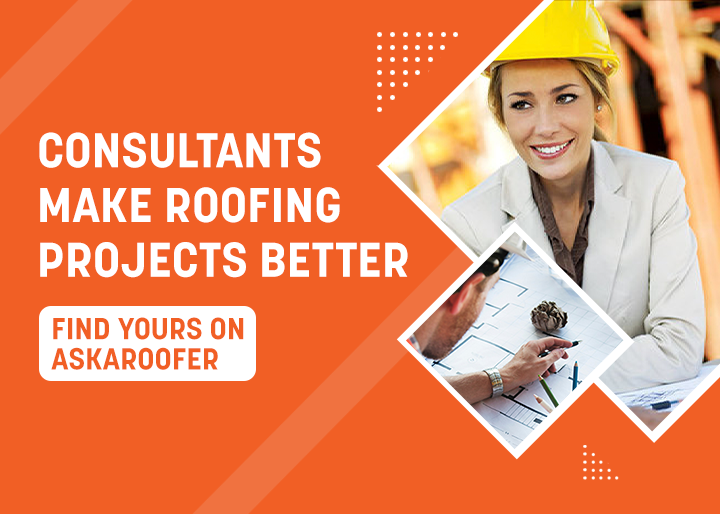
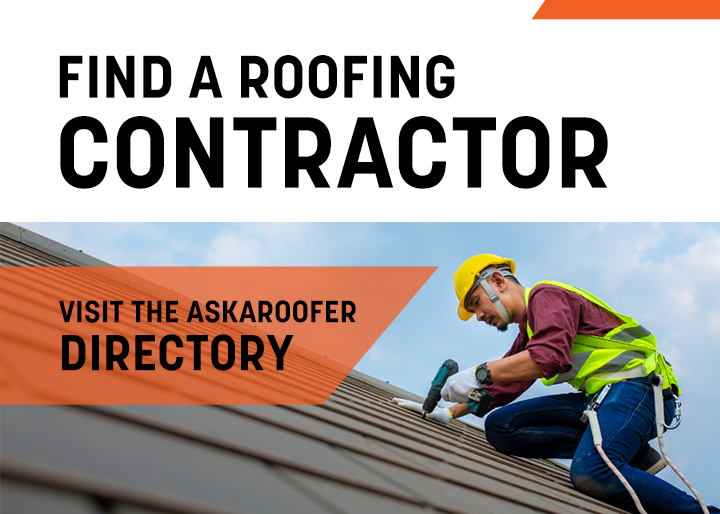

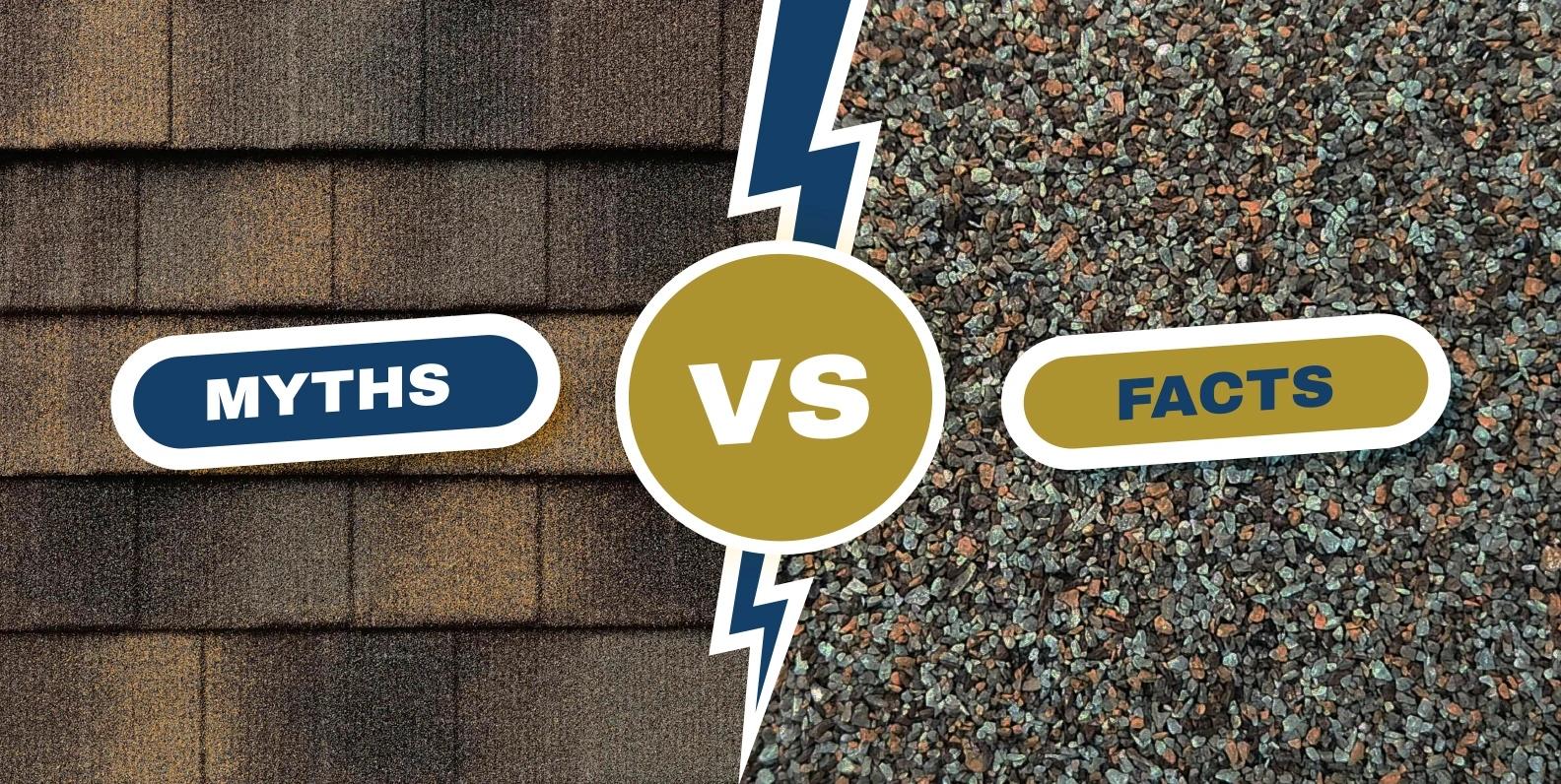
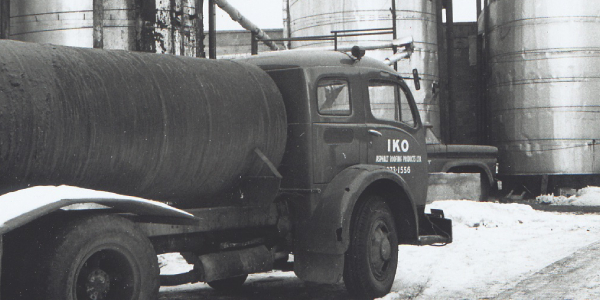
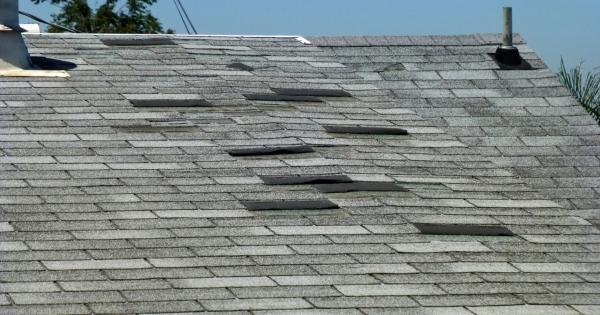
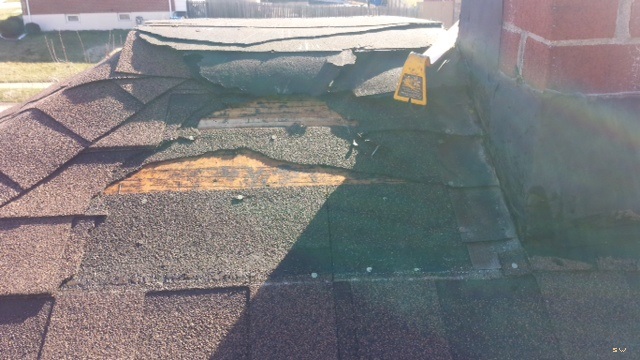




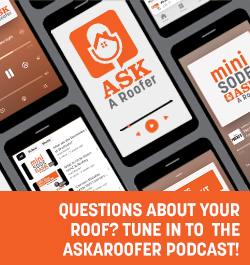
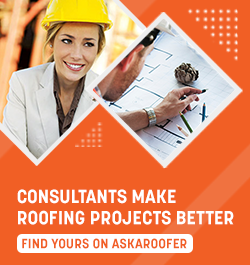
Comments
Leave a Reply
Have an account? Login to leave a comment!
Sign In